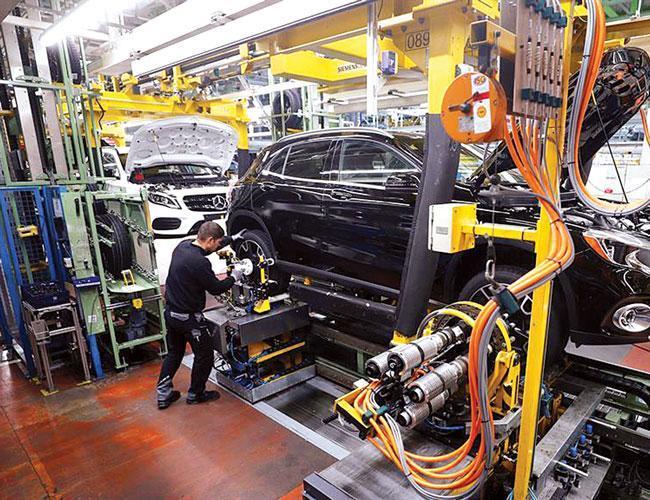
German industrial output unexpectedly fell in December for the fourth consecutive month, sending another signal that growth in Europe's biggest economy is weakening.
Data from the Federal Statistics Office on Feb. 7 showed industrial output was down by 0.4 percent, confounding a Reuters forecast for an increase of 0.7 percent.
Analysts said the fall makes it more likely that the economy contracted in the fourth quarter, which would translate into a recession after growth domestic product fell in the third quarter.
After nearly a decade of steady growth, the German economy has been facing headwinds from trade frictions between the United States and both China and the European Union. Britain's possible departure from the EU next month without a deal is also clouding the outlook for German manufacturers.
December's drop in industrial output was led by the construction sector, where activity shrank by more than 4 percent, which could not be offset by a small rise in manufacturing output, a breakdown of the data showed.
The economy ministry said the auto sector, which has been a drag on the economy because new emissions standards translated into fewer new vehicle registrations, rebounded in December as output rose by more than 7 percent.
The figure for November was revised up to a fall of 1.3 percent from a previously reported drop of 1.9 percent.
"A positive GDP reading in the fourth quarter of 2018 now looks tight," said Thomas Gitzel of VP Bank Group. "A positive (industry) reading would have reduced the chance of a negative GDP reading in the fourth quarter."
Growing signs of a slowdown have prompted the government to revise down its growth forecast for this year to 1 percent.
Industry groups and economists have said complacency on the economy from Chancellor Angela Merkel is also contributing to the slowdown.
They have urged her to grant families and businesses more generous tax cuts, and enact tax reforms that give women and the long-term unemployed more incentives to join the workforce. Merkel is also facing calls to make Germany more attractive to foreign workers to plug critical labor shortages.
Weaker growth or stagnation in Germany could have implications for the whole euro zone, whose largest economy acts as a bellwether of the economic health of the single currency bloc.
Private consumption has been providing impetus for the German economy as exports weaken, but economists suspect the slowdown in manufacturing has been spreading to services firms who depend mostly on the domestic market for growth.
Those suspicions were confirmed by the DIHK Chambers of Industry and Commerce, which on Feb. 7 revised down its growth forecast for this year to 0.9 percent from 1.7 percent.
The disappointing output data came after separate figures released on Feb. 6 showed that industrial orders had unexpectedly fallen for the second month in a row in December.